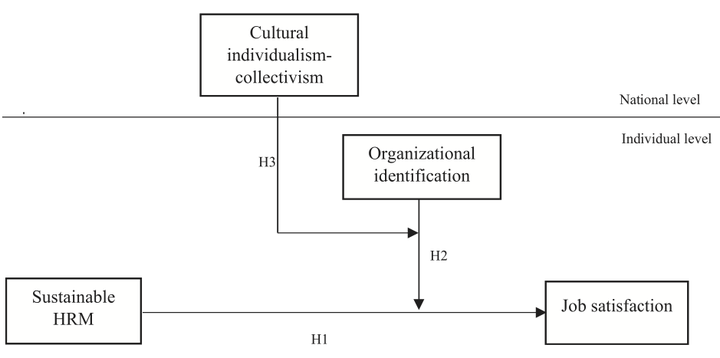Sustainable human resource management and job satisfaction—Unlocking the power of organizational identification: A cross-cultural perspective from 54 countries

Abstract
Sustainable human resource management is gaining importance in organizations due to its role in developing a sustainable work environment and well-being. This paper discusses the relationship between employee perceptions of sustainable human resource management and job satisfaction in 54 countries. We propose that sustainable HRM is positively associated with job satisfaction but that this relationship is moderated by employees' identification with the organization and country-level individualism–collectivism. Thus, we suggest national culture functions as a second-level moderator of the relationship of sustainable HRM with organizational identification on job satisfaction. Findings from the multi-level analyses using data from 14,502 employees nested within 54 countries provided support for our hypotheses, namely that employee perceptions of sustainable HRM were positively associated with job satisfaction and that this relationship was more pronounced for employees with lower levels compared to higher levels of organizational identification in individualistic rather than collectivistic countries. These findings bear important implications for both theory and practice.